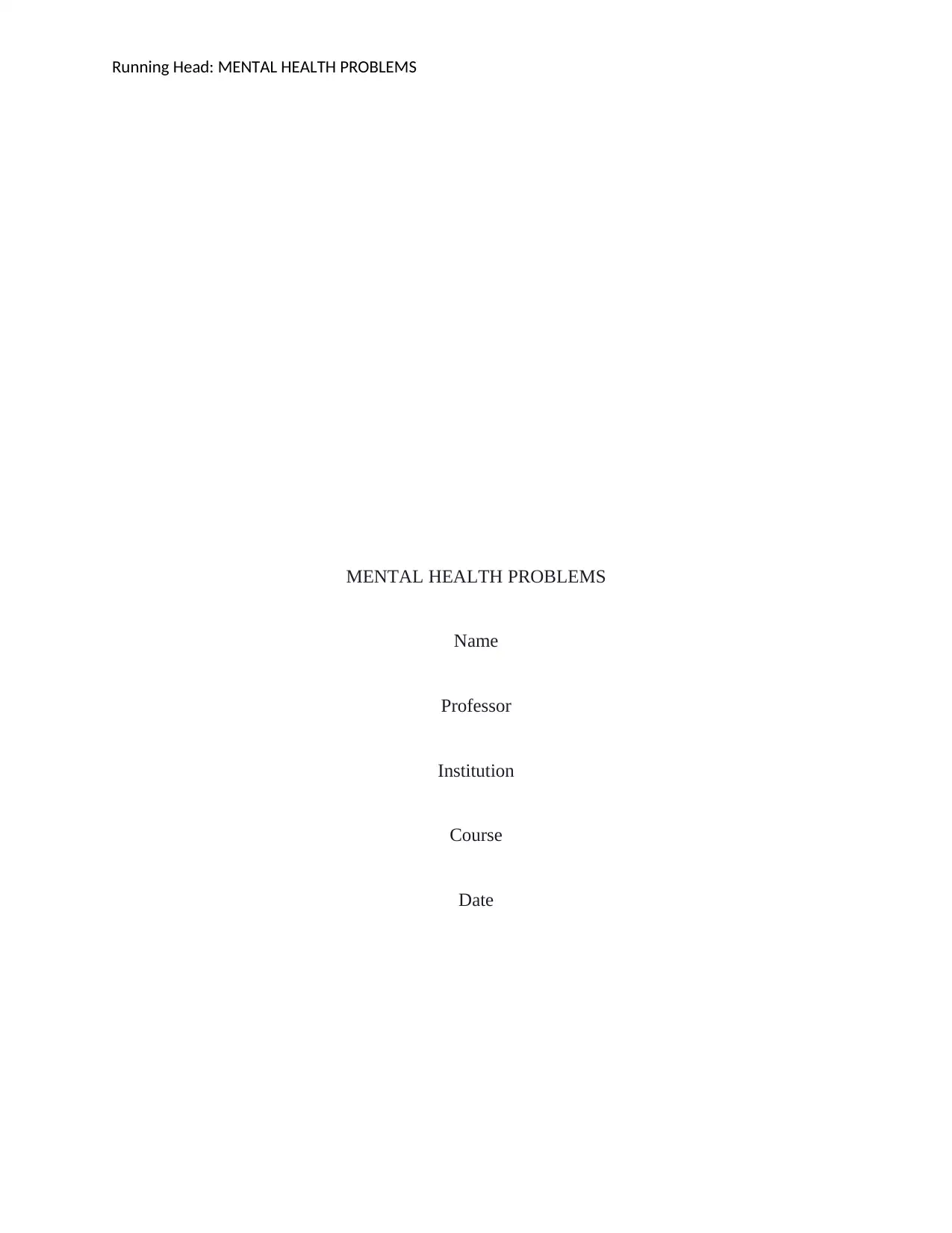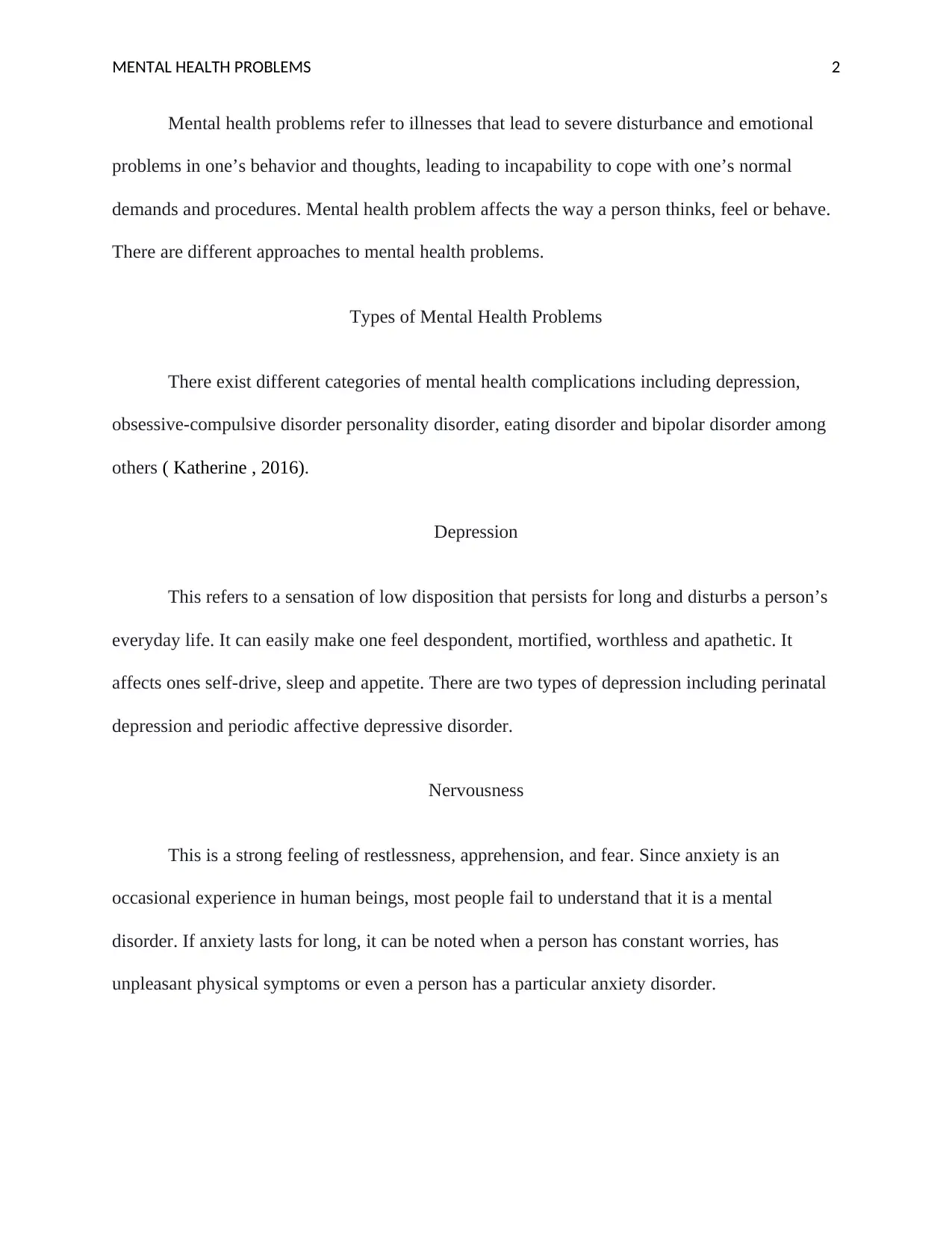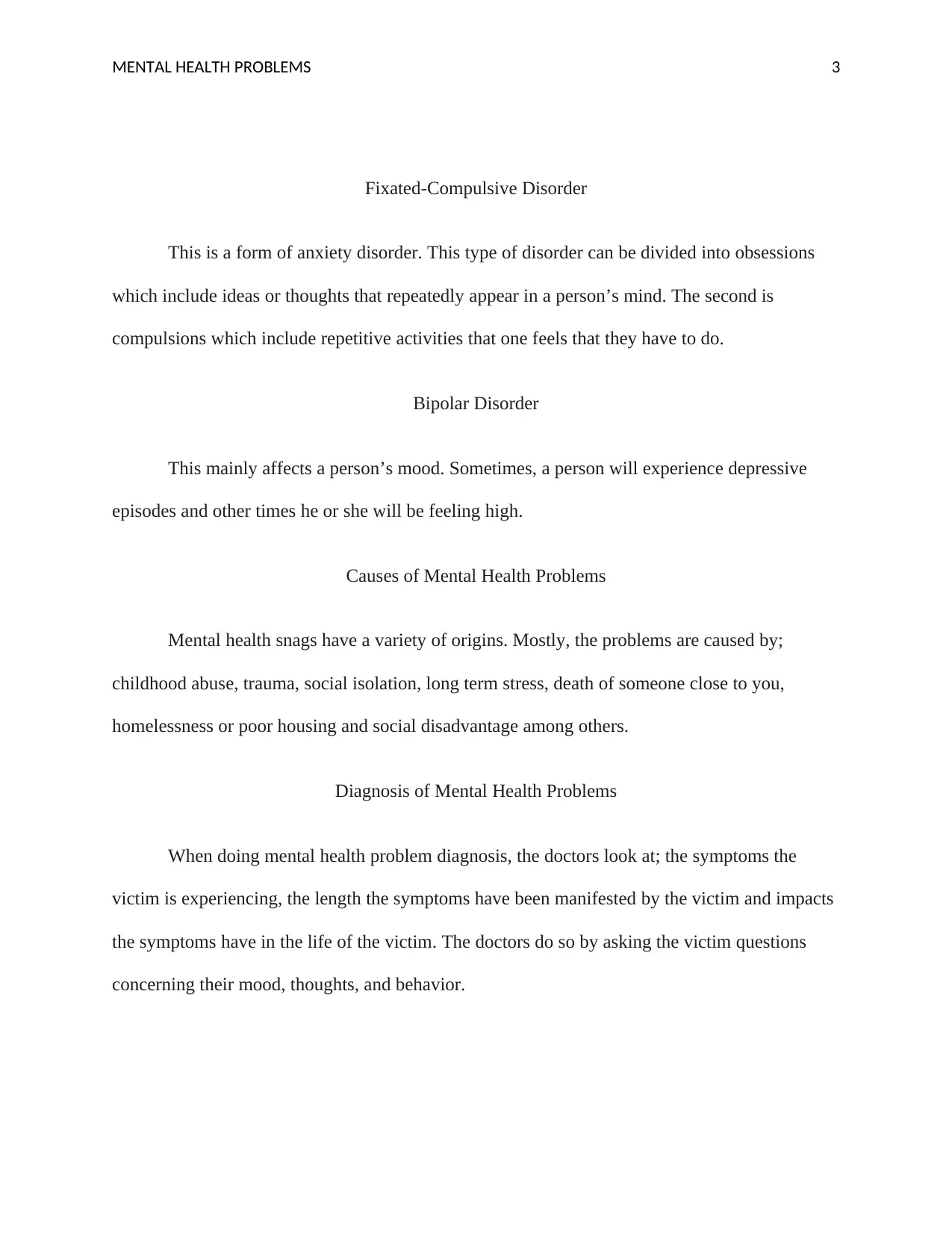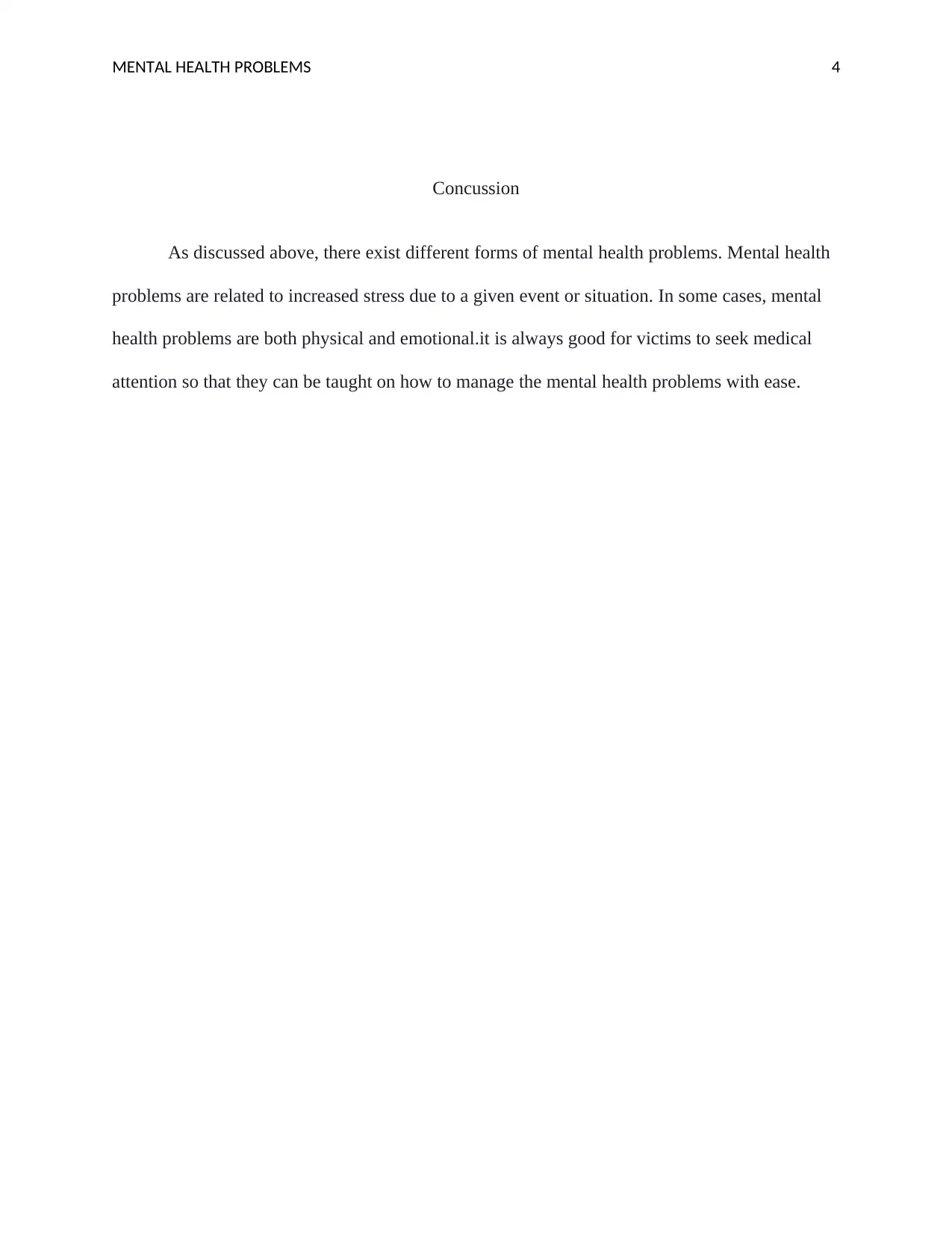Mental Health Problems: Understanding and Addressing the Issues
VerifiedAdded on 2022/11/13
|5
|530
|67
Report
AI Summary
This report delves into the realm of mental health problems, exploring various aspects such as their types, causes, and diagnostic procedures. It highlights several mental health issues, including depression, anxiety, obsessive-compulsive disorder, and bipolar disorder, providing insights into their characteristics and impacts. The report discusses the potential causes of these problems, such as childhood trauma, social isolation, and long-term stress, and explains the diagnostic process, which involves assessing symptoms, their duration, and their effects on the individual's life. The report emphasizes the importance of seeking medical attention for effective management of mental health problems, acknowledging the interconnectedness of physical and emotional well-being. It concludes by referencing a resource that provides further information on understanding mental health issues.
1 out of 5











![[object Object]](/_next/static/media/star-bottom.7253800d.svg)